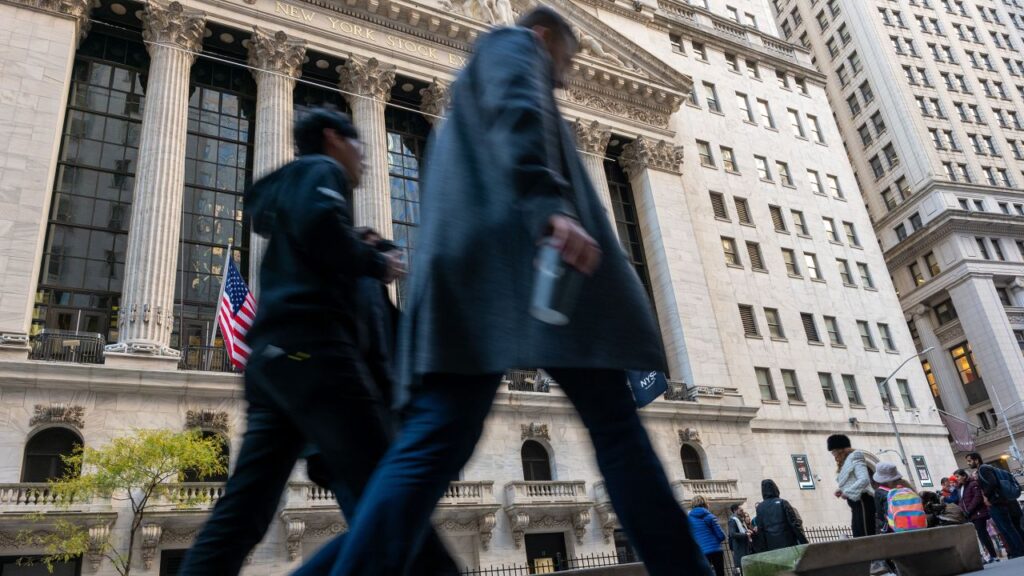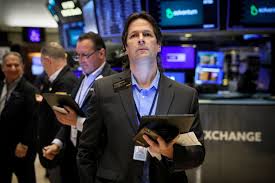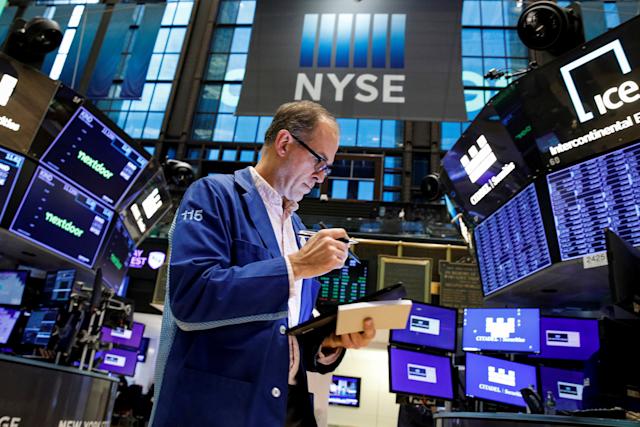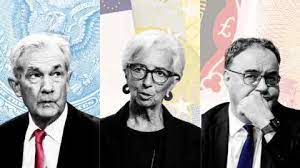The war in Ukraine has tended to increase uncertainty regarding inflation and growth prospects. When and with what consequences this war will end is pure speculation, but capital markets are expected to build a certain immunity to the headline risks in the coming weeks. The medium- to long-term consequences, on the other hand, could be significant. It is possible that we are at the beginning of a new bloc formation or a new Cold War. This would put a significant damper on globalization and further fuel higher structural inflation.
Major bourses in Europe closed mixed in light trading on Monday, with Germany’s DAX, Italy’s MIB and Spain IBEX 35 finishing below the flatline while London’s FTSE 100 and France’s CAC rose. Energy, commodity and healthcare shares were among the best performers while bank shares fell more than 1% after media reports that the ECB is looking at ways to stop banks earning billions of euros of extra profit from ultra-cheap lending schemes it launched during the pandemic once it starts to raise interest rates this month. In the meantime, US markets were closed for the Fourth of July public holiday.
Summary
- Shares in Asia rose on Tuesday as the Reserve Bank of Australia hiked interest rates in line with expectations. In the meantime, Japan and China both saw growth in services activity in June, according to separate purchasing managers’ indices.
- European equity futures are pointing up modestly after US equity futures pared gains.
- Oil held its recent advance as persistent supply-side issues outweighed concerns a recession will eventually hurt energy demand. Meanwhile, Norwegian offshore workers began a strike today that is expected to cut around 130,000 barrels or 6.5% of the country’s daily oil production.
- The Caixin China General Services PMI jumped sharply to 54.5 in June from 41.1 in May. While marking the highest reading since July 2021, the upturn also ended a three-month period of falling output, boosted by easing Covid-19 outbreaks and curbs.
- The Reserve Bank of Australia raised the cash rate by 50 bps to 1.35% during its July meeting. The move followed June’s 50 bps hike and a 25 bps increase in May, bringing the cash rate to a level not seen since May 2019. The board reiterated huge monetary support was no longer needed due to the strength of the economy and the current inflation pressures, adding that it was committing to take further tightening with the size and timing being guided by the incoming data.
- The annual producer inflation in the Euro Area fell to 36.3% in May from a record high of 37.2% in April and below market expectations of 36.7%. Prices slowed for energy and intermediate goods but rose further for durable and non-durable consumer goods and capital goods. Excluding energy, producer prices advanced 16%, accelerating from 15.6% in April.
- Ukraine has indicated that it needs $60 billion to $65 billion this year to meet its funding requirements, billions more than its allies have so far pledged. The figure is part of a larger blueprint for the nation’s longer-term reconstruction, but it is unclear how Ukraine’s allies will be able to cover that level of spending.
- China’s Vice Premier Liu He discussed US economic sanctions and tariffs in a call with Treasury Secretary Janet Yellen following reports the Biden administration is close to rolling back some trade levies on Chinese goods. Expectations on the Biden administration to ease some of the taxes to help lower the costs of everyday merchandise have increased as inflation in US soared this year. But analysts say scrapping the tariffs would have only a marginal effect on US inflation and China’s trade.
- Ryanair had its busiest month ever in June as it flew 15.9 million passengers, up from just 5.3 million a year earlier and topping a previous high set in May. Its load factor reached 95% for the first time since the beginning of the Covid-19 pandemic. The airline operated over 88,500 flights in June as its load factor rose from 92% a month earlier, when it flew 15.4 million passengers.
- German gas giant Uniper is in talks with the government over a potential bailout package of as much as €9 billion. The government is looking at applying a set of measures, including loans, taking an equity stake and also passing part of the surge in costs onto customers. The company, which is one of the biggest importers of Russian gas, said last week it was in talks with the government to secure liquidity.





